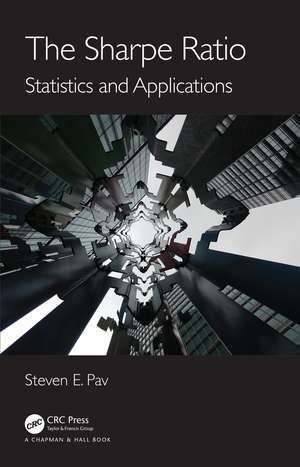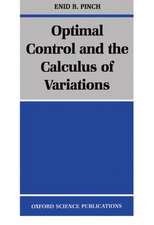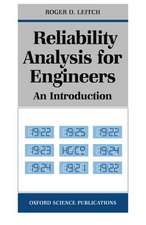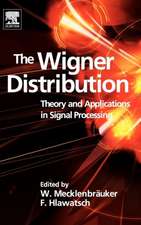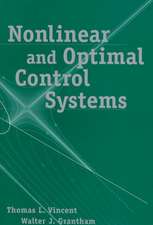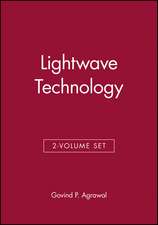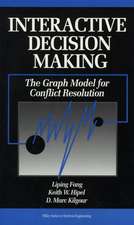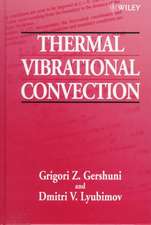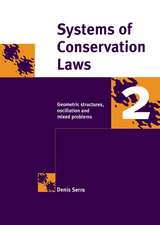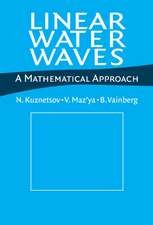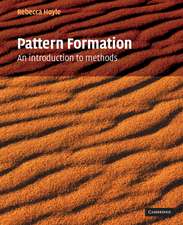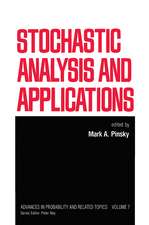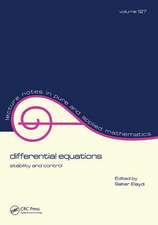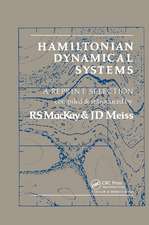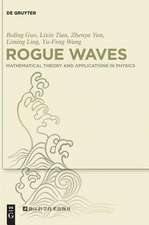The Sharpe Ratio: Statistics and Applications
Autor Steven E. Paven Limba Engleză Paperback – 25 sep 2023
performance of financial assets. The Markowitz portfolio is the portfolio with
the highest Sharpe ratio. The Sharpe Ratio: Statistics and Applications
examines the statistical propertiesof the Sharpe ratio and Markowitz portfolio,
both under the simplifying assumption of Gaussian returns and asymptotically.
Connections are drawn between the financial measures and classical statistics including
Student's t, Hotelling's T^2, and the Hotelling-Lawley trace.
The robustness of these statistics to heteroskedasticity, autocorrelation, fat tails,
and skew of returns are considered. The construction of portfolios to maximize
the Sharpe is expanded from the usual static unconditional model to include
subspace constraints, heding out assets, and the use of conditioning information on
both expected returns and risk. {book title} is the most comprehensive
treatment of the statistical properties of the Sharpe ratio and Markowitz
portfolio ever published.
Features:
* Material on single asset problems, market timing,
unconditional and conditional portfolio problems, hedged portfolios.
* Inference via both Frequentist and Bayesian paradigms.
*A comprehensive treatment of overoptimism and overfitting of trading
strategies.
*Advice on backtesting strategies.
*Dozens of examples and hundreds of exercises for self study.
This book is an essential reference for
the practicing quant strategist and the researcher alike,
and an invaluable textbook for the student.
Steven E. Pav holds a PhD in mathematics from Carnegie Mellon University,
and degrees in mathematics and ceramic engineering science
from Indiana University, Bloomington and Alfred University.
He was formerly a quantitative strategist at Convexus Advisors and Cerebellum
Capital, and a quantitative analyst at Bank of America.
He is the author of a dozen R packages, including those for analyzing the
significance of the Sharpe ratio and Markowitz portfolio.
He writes about the Sharpe ratio at https://protect-us.mimecast.com/s/BUveCPNMYvt0vnwX8Cj689u?domain=sharperat.io .
| Toate formatele și edițiile | Preț | Express |
|---|---|---|
| Paperback (1) | 359.18 lei 6-8 săpt. | |
| CRC Press – 25 sep 2023 | 359.18 lei 6-8 săpt. | |
| Hardback (1) | 794.76 lei 6-8 săpt. | |
| CRC Press – 23 sep 2021 | 794.76 lei 6-8 săpt. |
Preț: 359.18 lei
Nou
Puncte Express: 539
Preț estimativ în valută:
68.74€ • 71.50$ • 56.75£
68.74€ • 71.50$ • 56.75£
Carte tipărită la comandă
Livrare economică 14-28 aprilie
Preluare comenzi: 021 569.72.76
Specificații
ISBN-13: 9781032019314
ISBN-10: 103201931X
Pagini: 498
Ilustrații: 13 Tables, black and white; 78 Line drawings, black and white; 78 Illustrations, black and white
Dimensiuni: 156 x 234 x 26 mm
Greutate: 0.69 kg
Ediția:1
Editura: CRC Press
Colecția Chapman and Hall/CRC
ISBN-10: 103201931X
Pagini: 498
Ilustrații: 13 Tables, black and white; 78 Line drawings, black and white; 78 Illustrations, black and white
Dimensiuni: 156 x 234 x 26 mm
Greutate: 0.69 kg
Ediția:1
Editura: CRC Press
Colecția Chapman and Hall/CRC
Public țintă
Professional Practice & DevelopmentCuprins
I The Sharpe Ratio
1. The Sharpe Ratio and the Signal-Noise Ratio
2. The Sharpe Ratio for Gaussian Returns
3. The Sharpe Ratio for Other Returns
4. Overoptimism
II Maximizing the Signal-Noise Ratio
5. Maximizing the Sharpe Ratio
6. Portfolio Inference for Gaussian Returns
7. Portfolio Inference for Other Returns
8. Overoptimism and Overfitting
9. Market Timing
10. Backtesting
Appendix A Prerequisites
1. The Sharpe Ratio and the Signal-Noise Ratio
2. The Sharpe Ratio for Gaussian Returns
3. The Sharpe Ratio for Other Returns
4. Overoptimism
II Maximizing the Signal-Noise Ratio
5. Maximizing the Sharpe Ratio
6. Portfolio Inference for Gaussian Returns
7. Portfolio Inference for Other Returns
8. Overoptimism and Overfitting
9. Market Timing
10. Backtesting
Appendix A Prerequisites
Notă biografică
Steven E. Pav holds a PhD in mathematics from Carnegie Mellon University, and degrees in mathematics and ceramic engineering science from Indiana University, Bloomington and Alfred University. He was formerly a quantitative strategist at Convexus Advisors and Cerebellum Capital. He is the author of a dozen R packages, including those for analyzing the significance of the Sharpe ratio and Markowitz portfolio. He writes about the Sharpe ratio at http://www.sharperat.io/ .
Descriere
The Sharpe Ratio: Statistics and Applications is an essential reference for the practicing quant strategist and the researcher alike, and an invaluable textbook for the student. It is the most widely used metric for comparing the performance of financial assets.
